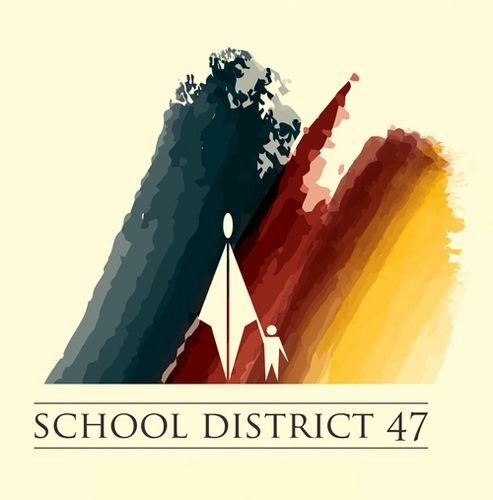School District 47 Powell River is a school district in British Columbia. It covers the community of Powell River as well as Texada Island.
Compassion Project at Powell River
Although compassion is a cornerstone of every major faith in the world, it is also a secular and universal human value. Compassion is essential to safe and caring schools and to the larger community. Compassion gives us the ability to feel with others and brings us into the presence of something greater than ourselves. It helps us to address the issues that we face both locally and globally. Compassion is fundamental to devloping socially responsible citizens who can address the global challenges we face.
Initiative Bridges Generation Gap
As a result of the Compassion Project which was initiated at Brooks Secondary School in 2010, there has been a growing emphasis on compassionate action in all of the district schools. On June 23, 2012, School District 47 students celebrated the community of Powell River joining the global campaign for compassionate action at the Max Cameron Theatre. The schools of Powell River are the first entire district in Canada to be named compassionate schools.
Students Look to their Elders for Wisdom and Advice
by Kyle Wells
In their search for the meaning of kindness, the students of Brooks Secondary School’s Compassion Project are tapping into the experience and knowledge of older generations for answers.
Powell River Compassionate Action Network brings community leaders together to affirm Charter for Compassion
As a component of the school’s ongoing compassion project, students and teachers created a documentary focusing on the meaning of compassion to different generations and exploring what each can learn from the other. Adults from the community were invited by the students to take part in videotaped interviews for the documentary. Elders from Tla’Amin (Sliammon) First Nation, relatives of students, community leaders and others sat down to talk about their definition of compassion and to impart wisdom to the students.
Students said many of the adults they interviewed expressed concern that modern technology is drastically changing the way people interact with each other. People felt that with text messaging, Facebook and other social media the amount of contact between people may be going up, but the level of real, meaningful connections between people is suffering. Perhaps surprisingly the students were inclined to agree.
“We are losing so much [of our] social skills to that and our social skills are why we’re compassionate because we can talk to each other and share feelings,” said James Blakeney, grade 11. “But we don’t share feelings anymore, because there’s no emotion in technology.”
Students and adults also discussed the difference between generations in terms of work ethic and the current sense of entitlement found in the younger generation. Again, students agreed with the adults who felt that young people today don’t understand or appreciate working for what they have. This notion extends to being compassionate also, which needs to be acted upon and worked toward rather than thought about or expected.
“When we were asking them ‘how do you be compassionate?’ they just said ‘go do it,’” said Andrew Baron, grade 12. “They don’t talk about it. Don’t say you’re going to do it, just do it.”
Gertie McNair, at 90 years of age, believes compassion never gets old. McNair, who students interviewed for the documentary, said she thinks the project is terrific and that the students have some tremendous ideas on how to boost compassion in the community. For the documentary she talked to the students about growing up during the depression and learning about compassion through necessity. She said even now she believes the best approach to making the world a little nicer to get around in is to show kindness to people everyday through the way you act.
“All the little things, when you’re older you notice them more than the younger generation do,” said McNair. “It’s just general things. Try and help people, do what you can to make them smile.”
Both students and adults agree that the answer to fixing these actions, to becoming more compassionate, is to walk the walk. The students said that going out and living their lives with compassion and treating others as they would want to be treated is the simplest yet most effective way to elicit change.
The project’s Compassion Challenge is all about just that: going out and doing nice things for people for no other reward than feeling good about yourself and more connected with others. Students are challenging the community to help out with this by committing random acts of kindness on Thursday, May 26. The public is encouraged on this day to do something nice for someone, document it with a photo, video or story and send it to the students for them to post online and eventually on boards in the community. The goal is to collect 10,000 acts of kindness.
“We do have the ability to bring compassion back and if we all work together we can do it,” said Blakeney. “It can’t just be a couple of people doing it all.”
Visit original source at: PR Peak
Location
Powell River, BC, Canada
Website
Powell River Board of Education

